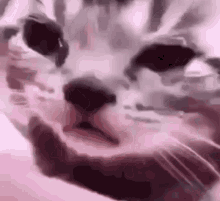We use cookies on our website for a number of purposes, including analytics, performance, and advertising. Learn more.
OK!
Boo
SIGN IN
Toxic Traits of an entp: how the challenger becomes a charlatan
By Boo Last Updated: September 11, 2024
yo yo yo, listen up, peeps!
look, you either clicked on this because you're one of us, a challenger (entp in the mbti house), or you're entangled with one and trying to dodge the intellectual bullets. the thing is, the magic of our dynamic, unpredictable awesomeness also has a flipside. sometimes, you realize you've crossed a line and, whoops, you’re suddenly the villain in your own story.
but wait, there's more…
here, in this mind maze of wit and wisdom, you're about to unravel the twisted ropes of entp toxicity. because, let's face it, while we may have won the debate championship, we're not always winning at life. so stick around. we’re diving into the toxic traits that keep you from being the best damn entp you can be.
explore the entp wellness series
- wellness for an entp
- 10 things that excite entp
- the guide to entp anger
- how entp handle stress
- surprising sexuality of entp
who even is an entp?
before we get into the meaty stuff, let's have a quick run-through of the typical entp goodies.
- quick thinkers: yeah, we're basically living supercomputers.
- charismatic af: we could charm the pants off a statue.
- innovative: if you want a problem solved in the most creatively twisted way, dial entp.
- energetic: seriously, we're like walking espresso shots.
- debate lovers: we live for a good mental sparring session.
toxic entp traits and the reality check
toxic traits can infiltrate the entp personality, often subverting our natural cognitive functions—extroverted intuition (ne), introverted thinking (ti), extroverted feeling (fe), and introverted sensing (si)—into something less constructive. they can go from brilliant instruments for navigating the world to hurdles in our path. let’s dive into how these cognitive functions can steer us wrong and examine some scenarios where they commonly do.
non-stop debate mode
when introverted thinking (ti) gets jammed in the 'on' position, life becomes a debate tournament with no intermission. this can make us come off as argumentative or confrontational when that’s not always the intention. for example, ever found yourself at a casual gathering, turning a simple chat about weekend plans into a heated debate on economic systems? that's your ti crossing into the toxic zone.
idea hoarding
extraverted intuition (ne) is usually a fountain of creativity. but when it's out of control, we're drowning in a sea of ideas without an island of action. imagine a work meeting where you spew out ideas left and right but never follow through on any. it's like being the concept artist who never gets to the actual painting. that's toxic ne for you.
emotional blind spots
extraverted feeling (fe), often overlooked in our cognitive stack, can be a source of significant blind spots. when we're tone-deaf to the emotional climate around us, we stumble. say, for instance, you're giving a best man’s speech, and instead of heartfelt anecdotes, you start analyzing the divorce rate. that’s fe failing to read the room.
why toxic traits develop
let's get real for a moment. no one wakes up and thinks, "ah, yes, today is a fabulous day to be toxic!" so how do these traits manifest in us challengers? understanding the origins can often be the key to the cure. our cognitive functions can become distorted by life experiences, stress, and even sheer laziness. each of these influences plays a role in steering our traits into toxic territories.
stress and coping mechanisms
ah, stress, the spice of life that can sometimes poison the whole meal. when you're under the gun, your cognitive functions, namely ne and ti, may kick into a distorted overdrive. instead of your ne generating innovative ideas, you're concocting doom scenarios, while ti is just nitpicking every flaw in sight. it's like a malfunction in your internal programming that leads you off course.
settling into bad habits
comfort zones are like quicksand: easy to fall into and hard to get out of. when you get too cozy with your existing patterns, your traits solidify into something toxic. that razor-sharp wit becomes a double-edged sword that can slash through any meaningful conversation.
life events
major life changes—like career shifts, breakups, or even winning the lottery—can act like a magnifying glass on your existing traits. you'll either rise like a phoenix or crash and burn. these events can trigger a fight-or-flight reaction in your cognitive functions, transforming you into either a toxic avenger or just plain toxic.
external validation
as challengers, we hate to admit it, but sometimes we do crave a pat on the back. now, when that hunger for external validation dominates, our fe goes a bit haywire. instead of gauging the room and adjusting our behavior for harmony, we might start dominating conversations just to get that elusive nod of approval.
fear of mediocrity
nothing scares an entp more than the idea of being average, just another face in the crowd. this existential dread can distort our ti, making us overly critical of ourselves and others, nitpicking every flaw to achieve some unattainable notion of perfection. it's like running on a hamster wheel of self-imposed elitism.
drop the toxic, keep the tonic
we’re not just out to identify problems; we’re here to find solutions. time to redirect those cognitive functions from toxic pitfalls to constructive pathways.
self-awareness
real talk: you can't fix what you don't acknowledge. self-awareness is crucial to recalibrating those cognitive functions. start by taking inventory of your habits and reactions. recognize where you're falling into toxic patterns. you're the captain of your ship; steer it right.
active listening
as someone who’s naturally expressive and vocal, true listening can be a blind spot for an entp. try this: next time you’re in a conversation, resist the urge to interrupt or formulate your response before the other person is done talking. not only will this dial down the ti from interrupting, but it will also engage your fe to sync better with people’s feelings and the overall mood.
commitment
in a world bursting with possibilities, sticking to one course of action feels limiting. but hear this: commitment is not a dirty word. tie up those loose ends, be it in relationships or projects. when you commit, you’re giving your ne and ti a constructive playground, a framework where they can truly shine.
faqs
is every entp toxic?
nope, far from it. but any personality type can veer off the path if not vigilant. so, check your compass regularly.
how can i tell if i'm a toxic entp?
listen, if you’re seeing a couple of these traits and thinking, "oh no, that's me," then that's your sign to dig deeper and take corrective action.
are entps naturally manipulative?
not inherently, but the cognitive toolset we have can be misused. just because you can argue your way out of a paper bag doesn't mean you should.
why do entps struggle with emotional intelligence?
our focus on logic and ideas sometimes overshadows the emotional aspects of interaction. but emotional intelligence is a learnable skill, even for the brainiest among us.
can toxic entp traits be changed?
absolutely. with focused effort and a genuine desire for growth, those toxic traits can be converted back into the superpowers they were meant to be.
final take: be the challenger, not the charlatan
so, where do you stand? armed with this self-awareness, the decision is yours: be the challenger who uses cognitive powers for good, or stay in the charlatan zone. time to make your next move.
MEET NEW PEOPLE
JOIN NOW
30,000,000+ DOWNLOADS
ENTP People and Characters
Universes
Personalities
Personality Database
Meet New People
30,000,000+ DOWNLOADS
JOIN NOW





























































